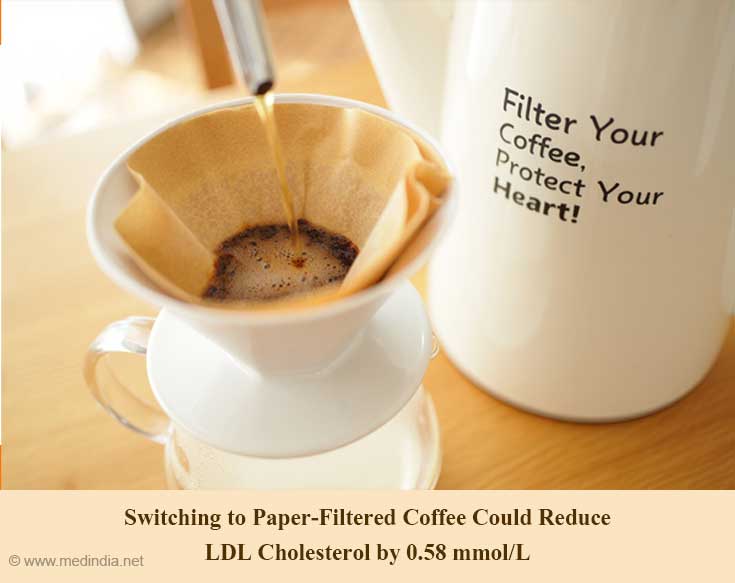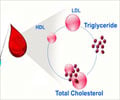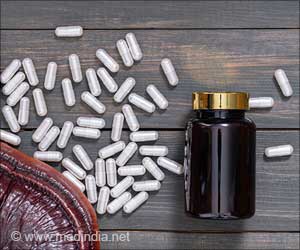Your daily coffee might be raising your cholesterol, switch to paper filtered coffee for a healthier choice.
- Coffee prepared in office machines with metal filters includes high levels of chemicals called cafestol and kahweol
- The coffee makers that use metal filters have the highest quantities of diterpene, whereas those that use instant or liquid coffee have less
- Instead of giving up your regular caffeine, switching to paper-filtered coffee
Coffee made with a metal filter can contain up to 15 times more cholesterol-raising compounds than paper-filtered coffee!’
What’s Hidden in Your Coffee?
Not all coffee is created equal! Depending on how it's brewed, your cup may contain some naturally occurring components that are not the healthiest. According to research from Chalmers University of Technology and Uppsala University, workplace coffee makers that use metal filters let through larger concentrations of kahweol and cafestol. These compounds, which are present in coffee oils, have been connected to elevated levels of LDL or Bad cholesterol.Cafestol concentration in machine-brewed coffee: 176 mg/L
Cafestol concentration in paper-filtered coffee: 12 mg/L (1✔ ✔Trusted Source
Cafestol and kahweol concentrations in workplace machine coffee compared with conventional brewing methods
Go to source)
How Much Coffee is too Much?
It's possible that you're slowly raising your cholesterol levels if you drink three or more cups of coffee every day at your office. The study indicates that, equivalent to consuming more saturated fat, drinking high-diterpene coffee gradually could result in a detectable increase in LDL cholesterol.
Not All Coffee Machines are the Same!
#Diterpenes are organic substances that occur naturally in a variety of plants, including coffee beans. Both cafestol and kahweol, which are present in the oil component of the beans, are the principal diterpenes in coffee. Paper filters fail to remove these chemicals, which is especially prevalent in unfiltered coffee brews like French press, Turkish, or Scandinavian boiling coffee (2✔ ✔Trusted SourceEffects of cafestol and kahweol from coffee grounds on serum lipids and serum liver enzymes in humans
Go to source).
Significant variations in diterpene levels were discovered by the study after testing various office coffee makers:
To Consider
- Coffee makers that use instant coffee (freeze-dried coffee) had the lowest amount of diterpene, thus it can be considered a healthier option compared to others.
- Liquid coffee makers that blend concentrate with hot water had moderate levels of diterpene.
To Not Consider
- Brewing machines (grinding beans and using metal filters) had the highest diterpene levels. Hence, you may want to reconsider your coffee-drinking habits if your workplace has a brewing machine.
Simple Swaps for a Healthier Brew!
- If your office has liquid coffee machines ,this might be a better option as they have diterpene levels similar to those of paper-filtered coffee.
- If you enjoy strong coffee, consider switching to a Moka pot or AeroPress with a paper filter, which can help reduce diterpene levels while keeping that bold flavor!
- Want to keep your French press? A small change that could have a significant impact over time is to try passing your brewed coffee through a paper filter before drinking.

You don’t need to quit coffee altogether—just be mindful of how it’s brewed! If you're unsure about your office machine, think about bringing your own filtered coffee or advocating for a switch to a healthier brewing method. Making small changes today could lead to a healthier heart later.
References:
- Cafestol and kahweol concentrations in workplace machine coffee compared with conventional brewing methods - (https://www.researchgate.net/publication/389195792_Cafestol_and_kahweol_concentrations_in_workplace_machine_coffee_compared_with_conventional_brewing_methods)
- Effects of cafestol and kahweol from coffee grounds on serum lipids and serum liver enzymes in humans - (https://pubmed.ncbi.nlm.nih.gov/7825527/)
Source-Medindia










